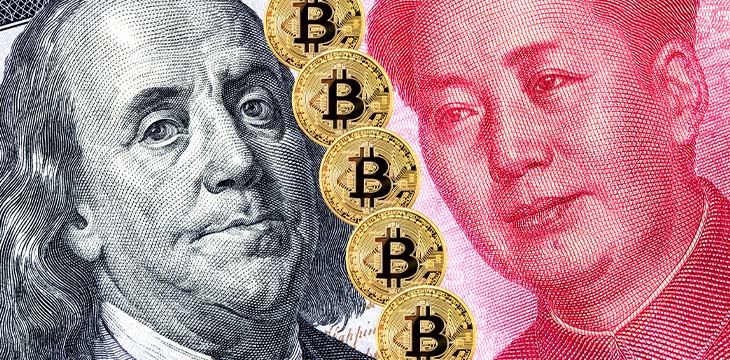|
Getting your Trinity Audio player ready...
|
Lawmakers in the United States have proposed a bill that will prohibit application stores from hosting apps that support the digital yuan as a payment method. Google and Apple’s app stores are the main target of the bill.
Per a Reuters report, three Republican Congress members made the proposal: Senator Tom Cotton (R-Ark.), Marco Rubio (R-Fla.), and Mike Braun (R-Ind.). The lawmakers state in the bill that the e-CNY would possibly allow China to spy on Americans.
According to Cotton’s office, the Chinese central bank digital currency (CBDC) could provide the Chinese government with “real-time visibility into all transactions on the network, posing privacy and security concerns for American persons who join this network.”
The bill states that companies that own or control app stores “shall not carry or support any app in [their] app store(s) within the United States that supports or enables transactions in e-CNY.”
At present, several popular Chinese apps that plan to allow the digital yuan to be used as a payment method, including WeChat and Alipay, are available in both the Google and Apple app stores in the United States.
The bill is not unexpected as the U.S. has long nursed suspicions about China’s CBDC. Previously, the Center for a New American Security, an American think tank, said that the e-CNY was likely to help the Chinese government to interfere in the lives and economy of its citizens.
Reuters reports that the Chinese Embassy in the U.S. has called the legislation an example of the U.S.’s bullying antics on foreign companies. The Embassy accused the U.S. of “abusing state power on the untenable ground of national security.”
China and the U.S. progress with their CBDCs
China’s CBDC is still at an early stage of adoption. Last month, China successfully tested the system for use in payments of taxes and other charges in several cities. The country plans to carry out more tests and rollouts during the upcoming Asian Games.
Meanwhile, in the U.S., the development of a CBDC is yet to even begin. Although, the U.S. has been giving it a lot of thought. In January, the U.S. Federal Reserve Bank published its report to examine the pros and cons of a state-backed digital currency.
In the report titled “Money and Payments: The U.S. Dollar in the Age of Digital Transformation,” the Fed stated that it does not favor any particular outcome where a digital dollar is concerned. However, it recognizes the benefits that the CBDC could bring. In testimony before Congress this week, the Fed Vice Chair, Lael Brainard, defended this position.
Watch the BSV Global Blockchain Convention Dubai 2022 Day 1 here:
https://www.youtube.com/watch?v=ggbZ8YedpBE
Watch the BSV Global Blockchain Convention Dubai 2022 Day 2 here:
https://www.youtube.com/watch?v=RzJsCRb6zt8
Watch the BSV Global Blockchain Convention Dubai 2022 Day 3 here:
https://www.youtube.com/watch?v=RzSCrXf1Ywc

 02-19-2026
02-19-2026 




